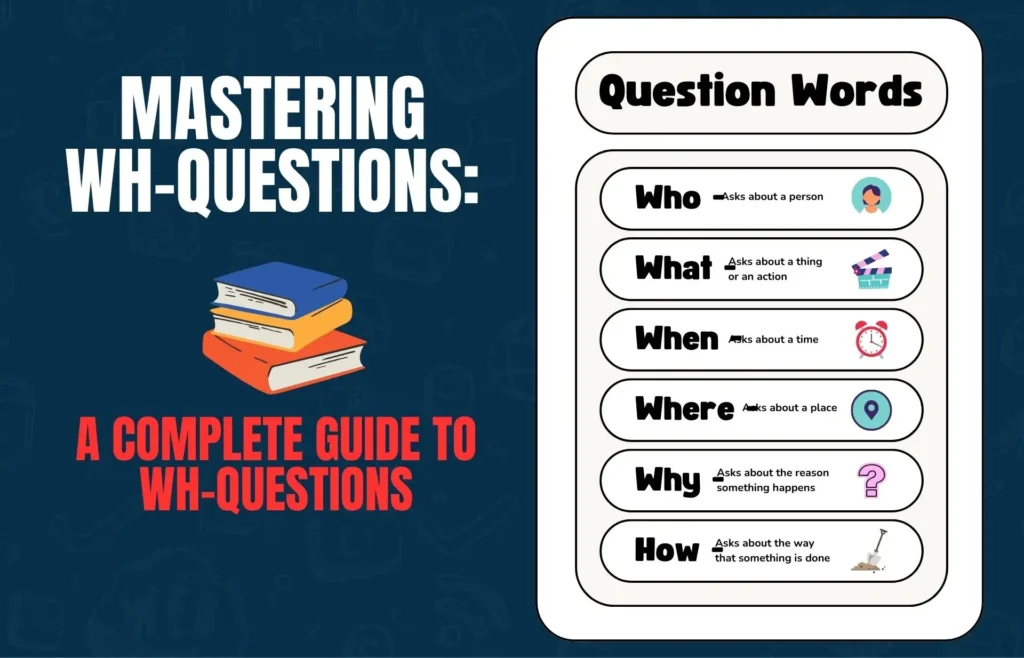
Sentence হলো এমন একটি শব্দগুচ্ছ যা একটি সম্পূর্ণ চিন্তা প্রকাশ করে। একটি sentence সাধারণত একটি subject এবং একটি verb থাকে, এবং তা পাঠকের কাছে পরিষ্কারভাবে তথ্য বা ধারণা পৌঁছে দেয়। (A sentence is a group of words that expresses a complete thought.)
- Sentence Formula: Subject + Verb + (Object)
- Example: She is a teacher.
- Bangla: সে একজন শিক্ষক।”
- Example Explain: She (Subject) is (Verb) a teacher (Object/Complement).
Sentence এর প্রকারভেদ
There are five categories of sentences according to their meaning and functions.
- Assertive Sentence (বর্ণনামূলক বাক্য)
- Interrogative Sentence (প্রশ্নবোধক বাক্য)
- Imperative Sentence (অনুজ্ঞাসূচক বাক্য)
- Optative Sentence (প্রার্থনা সূচক বাক্য)
- Exclamatory Sentence (বিস্ময়সূচক বাক্য)
There are three categories of sentences according to their Structure.
- Simple Sentence (সরল বাক্য)
- Compound Sentence (জটিল বাক্য)
- Complex Sentence (জটিল বাক্য)
Assertive Sentence (বিবৃতিমূলক বাক্য):
যে Sentence দ্বারা কোন কিছুর বর্ননা বা বিবৃতি প্রকাশ করে তাকে Assertive sentence বলে। বর্ণনামূলক বাক্য তথ্য বা মতামত প্রকাশ করে। Assertive Sentence সাধারণ ইতিবাচক বা নেতিবাচক হতে পারে। (An assertive sentence is a simple statement or assertion, and it may be affirmative or negative.)
Sentence Format: Subject + Verb + Object/Complement.
Example: He watches TV every day.
Bangla: সে প্রতিদিন টিভি দেখে।
Explanation: এখানে He হলো subject, watches হলো verb, এবং TV হলো object, আর every day ক্রিয়ার ঘনত্ব বোঝাচ্ছে (adverbial phrase) ।
Extra Examples to Practice:
- I like to read books. (আমি বই পড়তে পছন্দ করি।)
- He does not like ice cream. (সে আইসক্রিম পছন্দ করে না।)
- The sun rises in the east. (সূর্য পূর্ব দিকে উঠে।)
- They play football every day. (তারা প্রতিদিন ফুটবল খেলে।)
- We live in Dhaka. (আমরা ঢাকায় থাকি।)
- They are not coming to the party. (তারা পার্টিতে আসছে না।)
- He has a car. (তার একটি গাড়ি আছে।)
- Birds are flying in the sky. (পাখিরা আকাশে উড়ছে।)
- I am learning English. (আমি ইংরেজি শিখছি।)
- She loves coffee. (সে কফি ভালোবাসে।)
Interrogative Sentence (প্রশ্নবাচক বাক্য):
যে sentence দ্বারা প্রশ্ন করা হয় তাকে Interrogative Sentence বলে। Interrogative Sentence এর মাধ্যমে আমরা কোনো তথ্য বা বিষয় সম্পর্কে জিজ্ঞাসা করতে পারি। (An interrogative sentence is used to ask questions and ends with a question mark.)
1. Yes/No Questions Format: Auxiliary Verb + Subject +Main Verb + Object?
Example: Do you like coffee?
Bangla: তুমি কি কফি পছন্দ করো?
Explanation: এখানে Do হলো auxiliary verb, you হলো subject, এবং like coffee হলো verb ও object।
2.WH Questions Format: WH Word+Auxi Verb+ Subject+ Main Verb+ Object?
Example: What do you like?
Bangla: তুমি কি পছন্দ করো?
Explanation: এখানে What হলো WH word, do হলো auxiliary verb, you হলো subject, এবং like হলো main verb ও object।
Extra Examples to Practice:
- Can you help me? (তুমি কি আমাকে সাহায্য করতে পারবে?)
- Do you like ice cream? (তুমি কি আইসক্রিম পছন্দ করো?)
- Have you finished your homework? (তুমি কি তোমার কাজ শেষ করেছো?)
- Are they coming to the party? (তারা কি পার্টিতে আসছে?)
- Is it raining outside? (বাইরে কি বৃষ্টি হচ্ছে?)
- What is your name? (তোমার নাম কী?)
- Where do you live? (তুমি কোথায় থাকো?)
- How are you? (তুমি কেমন আছো?)
- Why are you late? (তুমি কেন দেরি করলে?)
- When is your exam? (তোমার পরীক্ষা কখন?)
Imperative Sentence (আদেশবাচক বাক্য):
যে sentence দ্বারা কাউকে কোনো আদেশ, অনুরোধ, পরামর্শ বা নির্দেশ দেওয়া হয় তাকে Imperative Sentence বলে। (An imperative sentence is used to give a command, request, suggestion, or instruction.)
Sentence Format: Subject + Verb + Object/Complement
Example: Open the door.
Bangla: দরজা খুলো।
Explanation: এখানে Open হলো verb এবং বাক্যটি আদেশ প্রকাশ করছে। Subject সাধারণত বোঝানো হয়, কিন্তু প্রকাশ করা হয় না (You understood) ।
Extra Examples to Practice:
- Close the door. (দরজাটা বন্ধ করো।)
- Please sit down. (অনুগ্রহ করে বসো।)
- Open your book. (তোমার বই খুলো।)
- Don’t touch that. (ওটা ছুঁয়ো না।)
- Give me the pen. (আমাকে কলমটা দাও।)
- Be quiet. (চুপ থাকো।)
- Help him with his work. (তার কাজ করতে সাহায্য করো।)
- Take your medicine. (তোমার ওষুধ খাও।)
- Turn off the lights. (লাইট বন্ধ করো।)
- Wait for me. (আমার জন্য অপেক্ষা করো।)
Optative Sentence (প্রার্থনা সূচক বাক্য):
যে sentence দ্বারা প্রার্থনা, শুভকামনা বা অভিশাপ প্রকাশ করা হয় তাকে Optative Sentence বলে। (An optative sentence expresses a wish, prayer, or blessing.)
Sentence Format: May/Wish + Subject + Verb + Object/Complement
Example: May you live long.
Bangla: তুমি দীর্ঘজীবী হও।
Explanation: এখানে May হলো auxiliary verb যা শুভকামনা প্রকাশ করছে, এবং you live long হলো বাক্যের বাকি অংশ।
Extra Examples to Practice:
- May you live long! (তুমি দীর্ঘায়ু হও!)
- May all your wishes come true! (তোমার সকল ইচ্ছা পূরণ হোক!)
- I wish you happiness! (আমি তোমার সুখ কামনা করি!)
- May you be successful! (তুমি সফল হও!)
- May peace be with you! (শান্তি তোমার সঙ্গে থাকুক!)
- I hope you enjoy the party! (আমি আশা করি তুমি পার্টি উপভোগ করবে!)
- May your dreams come true! (তোমার স্বপ্নগুলো পূরণ হোক!)
- I wish you good luck! (আমি তোমার জন্য শুভকামনা জানাই!)
- May you always be healthy! (তুমি সবসময় সুস্থ থাকো!)
- I wish for your success! (আমি তোমার সফলতা কামনা করি!)
Exclamatory Sentence (আবেগবাচক বাক্য):
Exclamatory sentence দ্বারা আকস্মিকভাবে মনের কোন পরিবর্তন যেমন দুঃখ, আনন্দ, আবেগ বা বিস্ময় প্রকাশ করা হয়। An exclamatory sentence expresses emotions like surprise, joy, or anger.
Sentence Format: Exclamation word + Subject + Verb + Object/Complement!
Example: What a beautiful day!
Bangla: কী সুন্দর দিন!
Explanation: এখানে What হলো exclamation word, a beautiful day হলো subject এবং complement যা বিস্ময় প্রকাশ করছে।
Extra Examples to Practice:
- What a beautiful day! (কী সুন্দর দিন!)
- Wow, that’s amazing! (ওয়াও, এটা অসাধারণ!)
- Oh no, I missed the bus! (ওহ না, আমি বাস মিস করেছি!)
- How wonderful the party was! (পার্টি কী দুর্দান্ত ছিল!)
- What a big mistake! (কী বড় ভুল!)
- I can’t believe it! (আমি বিশ্বাস করতে পারছি না!)
- She won the lottery! (সে লটারি জিতেছে!)
- It’s so cold outside! (বাইরে কী ঠান্ডা!)
- I am so happy today! (আজ আমি অনেক খুশি!)
- What a surprise! (কী চমকপ্রদ ঘটনা!)
Simple Sentence (সরল বাক্য):
যে সকল বাক্যে একটি মাত্র Subject or object এবং একটিমাত্র সমাপিকা ক্রিয়া (finite verb) থাকে তাকেই Simple sentence বা সরল বাক্য বলে। সরল বাক্য একটি একক স্বাধীন ক্লজ নিয়ে গঠিত যা একটি বিষয় এবং একটি ক্রিয়া থাকে। (A simple sentence consists of a single independent clause with a subject and a predicate.)
Sentence Format: Subject + Verb + Object/Complement
Example: She reads books.
Bangla: সে বই পড়ে।
Explanation: এখানে She হলো subject, reads হলো verb, এবং books হলো object। এটি একটি সরল বাক্য।
Extra Examples to Practice
- I read books. (আমি বই পড়ি।)
- She sings beautifully. (সে সুন্দরভাবে গায়কী করে।)
- The cat sleeps. (বিড়াল ঘুমাচ্ছে।)
- They play cricket. (তারা ক্রিকেট খেলছে।)
- We are going home. (আমরা বাড়ি যাচ্ছি।)
- He eats breakfast. (সে প্রাতঃরাশ খায়।)
- The dog barks. (কুকুর ঘেউ ঘেউ করছে।)
- The sun shines. (সূর্য ঝলমল করছে।)
- She writes letters. (সে চিঠি লেখে।)
- The phone rang. (ফোন বেজেছে।)
Compound Sentence (মিশ্র/যৌগিক বাক্য):
যে sentence-এ দুটি বা তত্ত্বক বা এরকম দুটি independent clause থাকে, যা দুটি বা তত্ত্বক বা এরকম দুটি subordinate idea প্রকাশ করে, তাকে Compound Sentence বলে। (A compound sentence consists of two or more independent clauses that express two or more complete ideas.)
Sentence Format: Independent Clause + Coordinating Conjunction + Independent Clause.
Example: She likes coffee, but he prefers tea.
Bangla: তিনি কফি পছন্দ করে, তবে তিনি চা পছন্দ করে।
Explanation: এখানে She likes coffee এবং he prefers tea হলো দুটি independent clause যা দুটি পূর্ণ চিন্তা প্রকাশ করে। এটি একটি সমযুক্ত বাক্য।
Extra Examples to Practice:
- I wanted to go, but it was raining. (আমি যেতে চেয়েছিলাম, কিন্তু বৃষ্টি হচ্ছিল।)
- She loves coffee, and he prefers tea. (সে কফি পছন্দ করে, এবং সে চা পছন্দ করে।)
- I don’t like spinach, but I will eat it. (আমি পালং শাক পছন্দ করি না, কিন্তু আমি তা খাব।)
- I like cats, but she likes dogs. (আমি বিড়াল পছন্দ করি, কিন্তু সে কুকুর পছন্দ করে।)
- He studied hard, and he passed the exam. (সে কঠিন পড়াশোনা করেছে, এবং সে পরীক্ষায় পাস করেছে।)
- We went to the park, and it was fun. (আমরা উদ্যানে গিয়েছিলাম, এবং সেটা মজার ছিল।)
- She sings beautifully, but he is shy. (সে সুন্দর গায়ে, কিন্তু সে লজ্জিত।)
- I want pizza, or I will make pasta. (আমি পিজ্জা চাই, অথবা আমি পাস্তা বানাব।)
- He is tall, but she is short. (সে লম্বা, কিন্তু সে খাটো।)
- She is reading a book, but I am watching TV. (সে একটি বই পড়ছে, কিন্তু আমি টিভি দেখছি।)
Complex Sentence (জটিল বাক্য):
Complex sentence-এ একটি independent clause এবং একটি বা একাধিক dependent clause থাকে, যা একটি বা একাধিক subordinate idea প্রকাশ করে। A complex sentence consists of one independent clause and at least one dependent clause. Dependent clauses add additional information to the main clause.
Sentence Format: Independent Clause + Subordinating Conjunction + Dependent Clause
Example 1: I will go to the market if it stops raining.
Bangla: যদি বৃষ্টি বন্ধ হয় তবে আমি বাজারে যাব।
Explanation: এখানে I will go to the market হলো independent clause এবং if it stops raining হলো dependent clause যা একটি subordinate idea প্রকাশ করছে। এটি একটি সংযুক্ত বাক্য।
Example 2: Although it was raining, they went for a walk.
Bangla: যদিও এটা বৃষ্টির ছিল তবে তারা একটি হাঁটুপাত করেছিল।
Explanation: এখানে they went for a walk হলো independent clause এবং Although it was raining হলো dependent clause যা একটি subordinate idea প্রকাশ করছে। এটি একটি সংযুক্ত বাক্য।
Example 3: She likes to read books because she enjoys stories.
Bangla: তিনি গল্প পড়তে ভালোবাসেন কারণ তিনি গল্প পড়তে ভালোবাসেন।
Explanation: এখানে She likes to read books হলো independent clause এবং because she enjoys stories হলো dependent clause যা একটি subordinate idea প্রকাশ করছে। এটি একটি সংযুক্ত বাক্য।
Extra Examples to Practice:
- I will call you when I arrive. (আমি যখন পৌঁছাব, তখন আমি তোমাকে কল করব।)
- She left because she was tired. (সে চলে গেল কারণ সে ক্লান্ত ছিল।)
- Although it was raining, we went outside. (যদিও বৃষ্টি হচ্ছিল, আমরা বাইরে গিয়েছিলাম।)
- They stayed home while their friends went to the movies. (তারা বাড়িতে থাকল যখন তাদের বন্ধু সিনেমায় গেল।)
- I can’t go out unless it stops raining. (আমি বাইরে যেতে পারব না যতক্ষণ না বৃষ্টি থামে।)
- Because he studied hard, he passed the exam. (কারণ সে কঠোর পরিশ্রম করেছে, সে পরীক্ষায় পাস করেছে।)
- She will attend the meeting if she finishes her work. (সে কাজ শেষ করলে মিটিংয়ে যাবে।)
- I enjoy reading books that have a good story. (আমি বই পড়তে পছন্দ করি যেগুলোর একটি ভালো গল্প থাকে।)
- When the bell rings, the students will leave. (যখন ঘণ্টা বাজবে, ছাত্ররা বের হয়ে যাবে।)
- Since she is not feeling well, she won’t come to the party. (কারণ সে ভালো বোধ করছে না, সে পার্টিতে আসবে না।)
In conclusion, understanding sentence classification is essential for mastering the structure and meaning of language. By familiarizing yourself with the different types of sentences and their functions, you can improve both your written and spoken communication. Whether you are a beginner or looking to refine your skills, the knowledge of sentence types and their explanations will empower you to express yourself more clearly and effectively. Keep practicing and exploring various sentence structures to enhance your language proficiency.


